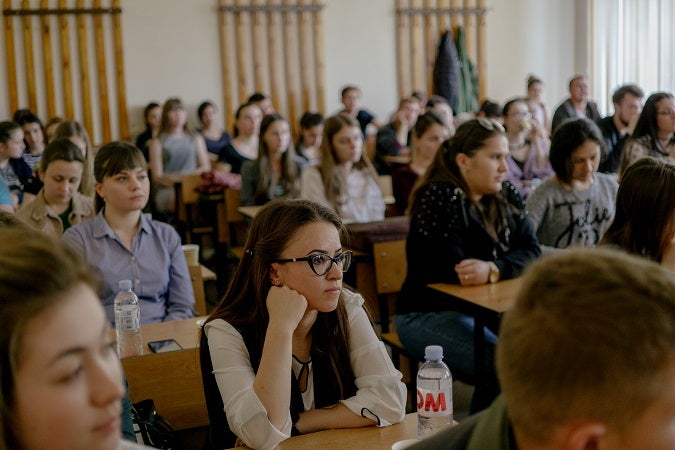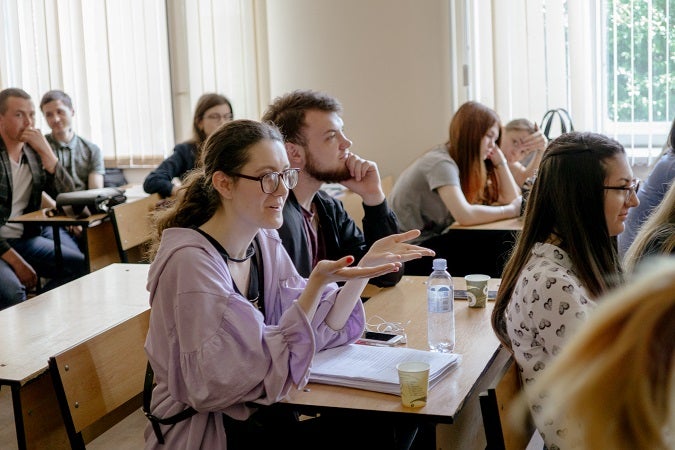In Moldova, students discuss gender bias, and dare to dream
UN Women organized events for youth in Moldova to encourage them to challenge gender bias in their daily lives and career choices.Date:
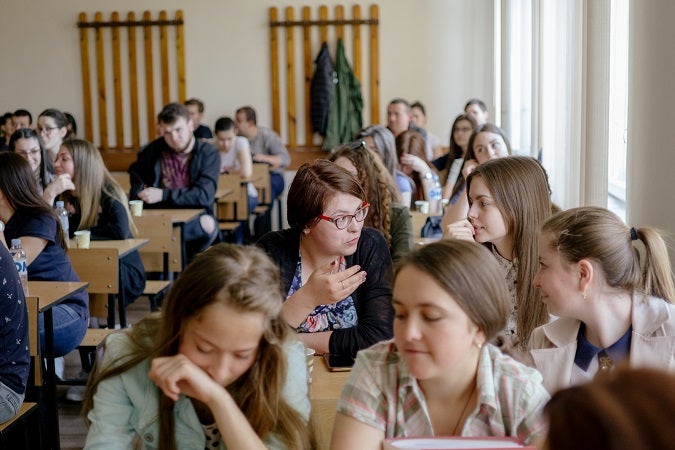
More than 100 college students and professors recently took part in UN Women Moldova organised discussions on gender equality and ending violence against women. The talks were part of You know you can, a month-long UN Women in Moldova campaign that that challenged gender stereotypes and encouraged women and girls to assert themselves as leaders and professionals in all fields, and to fight gender bias and choose any career they wished.
“Today’s discussions were very useful. I learned about rights and responsibilities, and that we have to overcome our fears and have the courage to challenge existing social norms. I would tell girls and boys to trust themselves and not allow anyone to hurt or humiliate them,” said Snejana Havratiuc, a first-year student at the Philology Faculty, Balti University.
Held at the College of Medicine in Cahul, about 170km south of Moldova`s capital, Chișinău, and Alecu Russo University in Balti, 130km north of the capital, the discussions – and the You know you can campaign – were organised by UN Women in Moldova with financial support from the Government of Sweden.
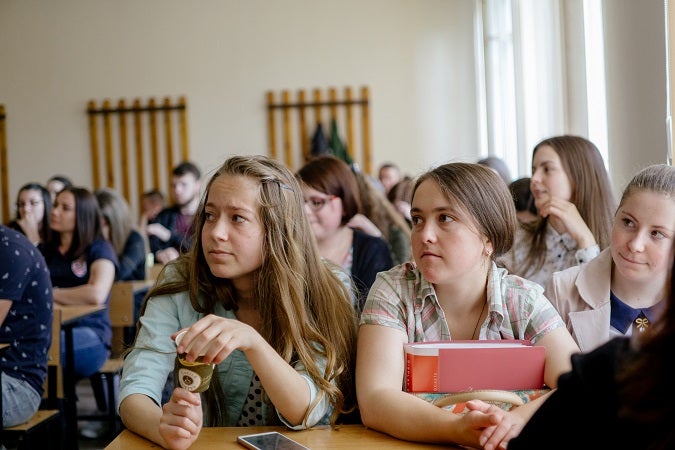
The wide-ranging discussions covered issues like the pay gap between men and women; ways that household responsibilities can be split between partners; various forms of violence and how to prevent it; and areas where inequality is prevalent.
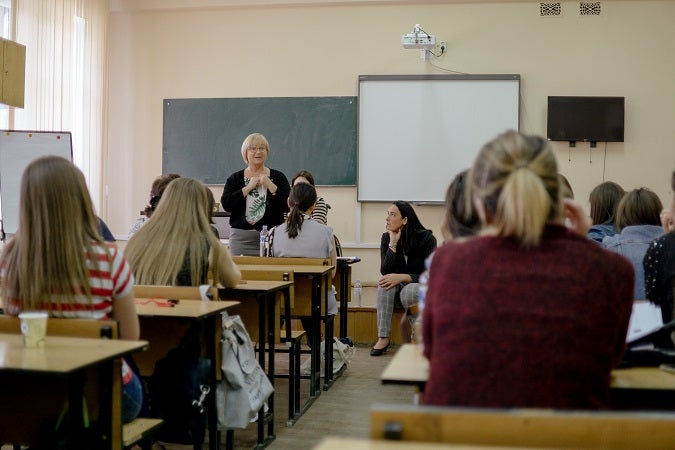
Speakers at the discussions included two of the 10 women You know you can as pioneers for being first in a male-dominated area: Mariana Gramathe first woman colonel in the Moldova Ministry of Defense, and Catinca Mardarovici, gender equality activist and founder of 50/50, Moldova’s first women's political club and a Member of Parliament (MP) 1994-1998.
Sometimes we have a wrong understanding of gender equality. Gender equality is not justice for women only, gender equality is about justice and equality for both women and men,” said Catinca Mardarovici.
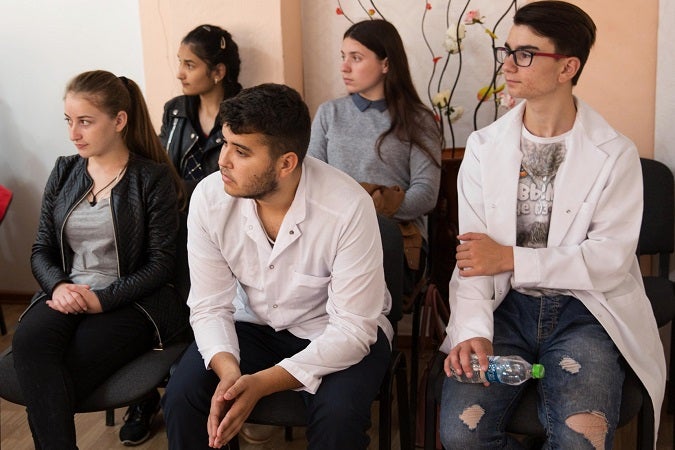
The discussions had an impact on both female and male participants.
“I will tell my family and friends from my home village that we shouldn’t feel superior to others, we are all equal, and should treat everyone, men and women, equally,” said Mihai Buruiana, a first-year student at the College of Medicine Cahul.
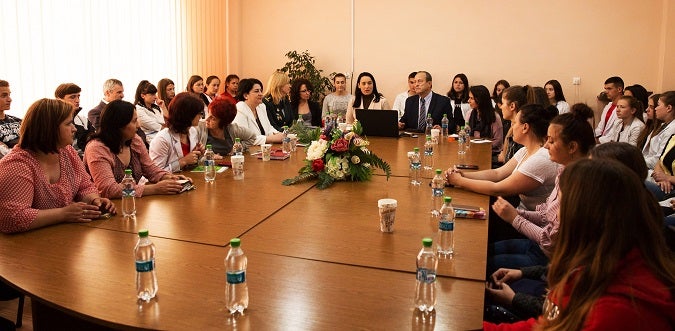
“I faced gender-based discrimination, was treated differently from my brothers,” said Nelea, 18, another College of Medicine Cahul student. “Today, I learned that in healthy relationships, women and men can share equally in household responsibilities, and should have equal opportunities in their professional lives.”
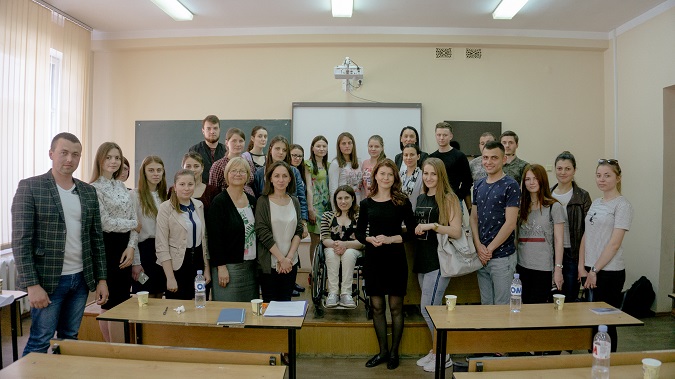
Women in Moldova are underrepresented in decision-making at all levels: Women make up only 22 per cent of Moldova’s MPs, 38 per cent of the ministers, 21 per cent of mayors, 30 per cent of local councillors, and 19 per cent of district councillors (2018).
Women have lower employment rates than men and perform the bulk of the work at home. The also endure high levels of gender-based violence in their daily lives, with 63 per cent of women aged 15-65 saying they’d experienced at least one form of violence from a husband or partner during her lifetime. (2011, National Bureau of Statistics)
To address these inequalities, the Moldovan Government has adopted a National Strategy for Equality between Men and Women 2017-2021, and a National Strategy on Prevention and Combating of Violence against Women and Domestic Violence for 2018-2023.
